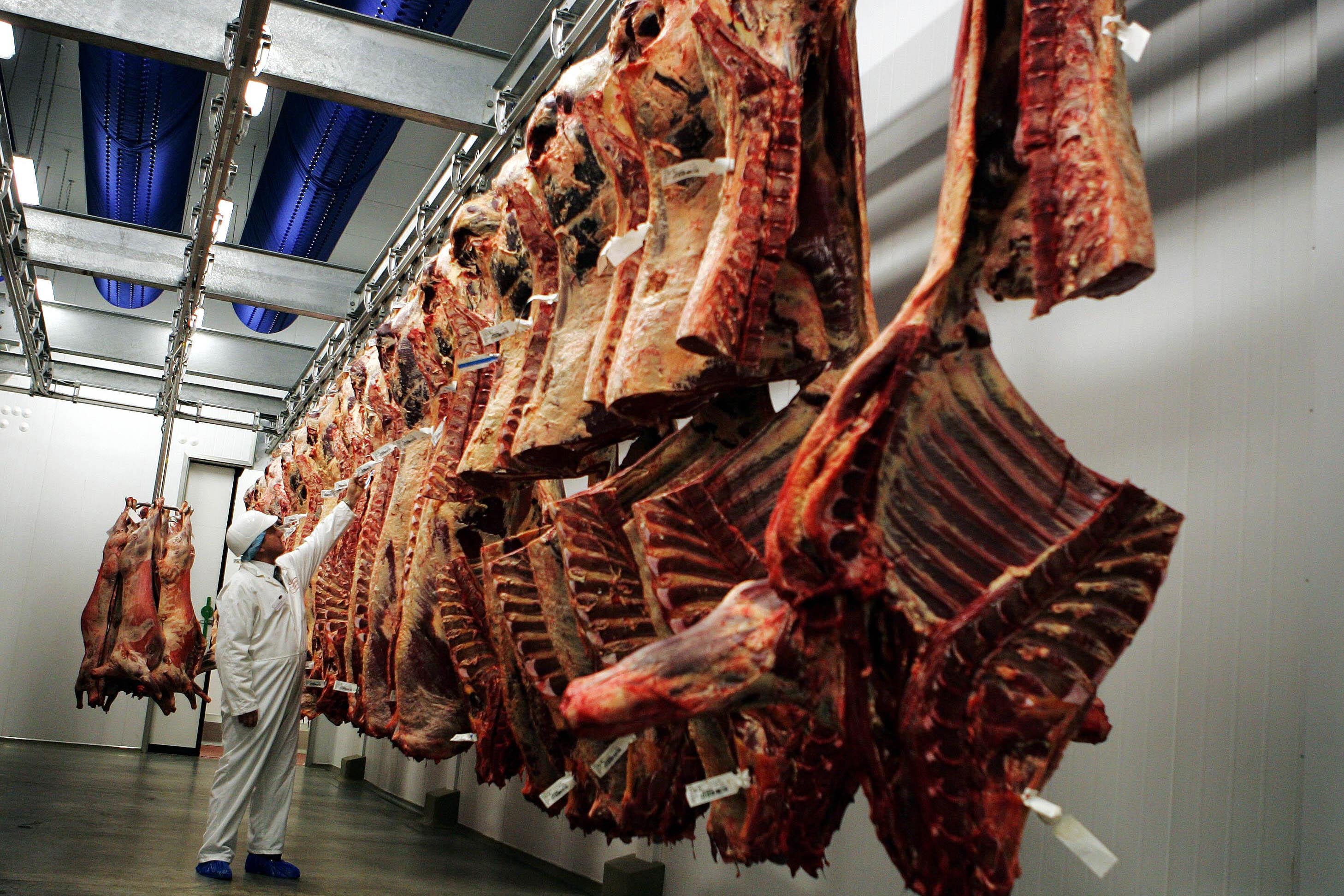Fall in number of British abattoirs risks ‘seriously jeopardising’ food security
Abattoir numbers have declined from about 2,500 in the 1970s to just 203 today, the British Meat Processors Association said.

Your support helps us to tell the story
From reproductive rights to climate change to Big Tech, The Independent is on the ground when the story is developing. Whether it's investigating the financials of Elon Musk's pro-Trump PAC or producing our latest documentary, 'The A Word', which shines a light on the American women fighting for reproductive rights, we know how important it is to parse out the facts from the messaging.
At such a critical moment in US history, we need reporters on the ground. Your donation allows us to keep sending journalists to speak to both sides of the story.
The Independent is trusted by Americans across the entire political spectrum. And unlike many other quality news outlets, we choose not to lock Americans out of our reporting and analysis with paywalls. We believe quality journalism should be available to everyone, paid for by those who can afford it.
Your support makes all the difference.The fall in the number of British abattoirs from about 2,500 in the 1970s to just 203 now risks “seriously jeopardising” the country’s food security, the industry has warned.
The British Meat Processors Association (BMPA) said the “worrying” long-term trend of falling livestock numbers and “huge” drop in abattoir numbers would, left unchecked, jeopardise Britain’s food security.
It blamed the threat to the abattoir industry on falling farm production, “increasingly onerous” trade barriers and a “systemic” labour shortage.
The BMPA said this should worry UK consumers and government alike because a lack of a viable abattoir industry would lead to a sharper decline in domestic farming, a heavier reliance on imported meat and “the loss of a key pillar of UK food security”.
It said that, although “contentious”, the meat processing industry could survive without British livestock and, if necessary, could replace meat from UK-reared animals with imported meat.
If we let this trend continue, Britain is in danger of throwing away one of the key strategically important parts of UK infrastructure and seriously jeopardising the country’s food security
However, British livestock farmers could not survive without abattoirs.
In its first “Meat Industry Manifesto” the BMPA said: “If we let this trend continue, Britain is in danger of throwing away one of the key strategically important parts of UK infrastructure and seriously jeopardising the country’s food security.
“It will expose the UK to risks beyond our control like wars, climate change-driven shortages and export bans where supplies are suddenly cut off.”
BMPA chief executive Nick Allen said: “Since we left the EU the British meat industry has come under pressure from increased bureaucracy, tougher trade barriers and worker shortages.
“Government policy has played a dominant role and shaped the current trading environment.
“But many policy decisions have been made in a departmental vacuum, without a full understanding of the impacts and unintended consequences they will have on different parts of the food chain.
“Often, one problem is fixed, only to create another.
“We see the election of a new Labour Government as an opportunity to re-set how government and industry work together to share on-the-ground intelligence that will help shape pragmatic, workable policies that strengthen Britain’s long-term food security.”